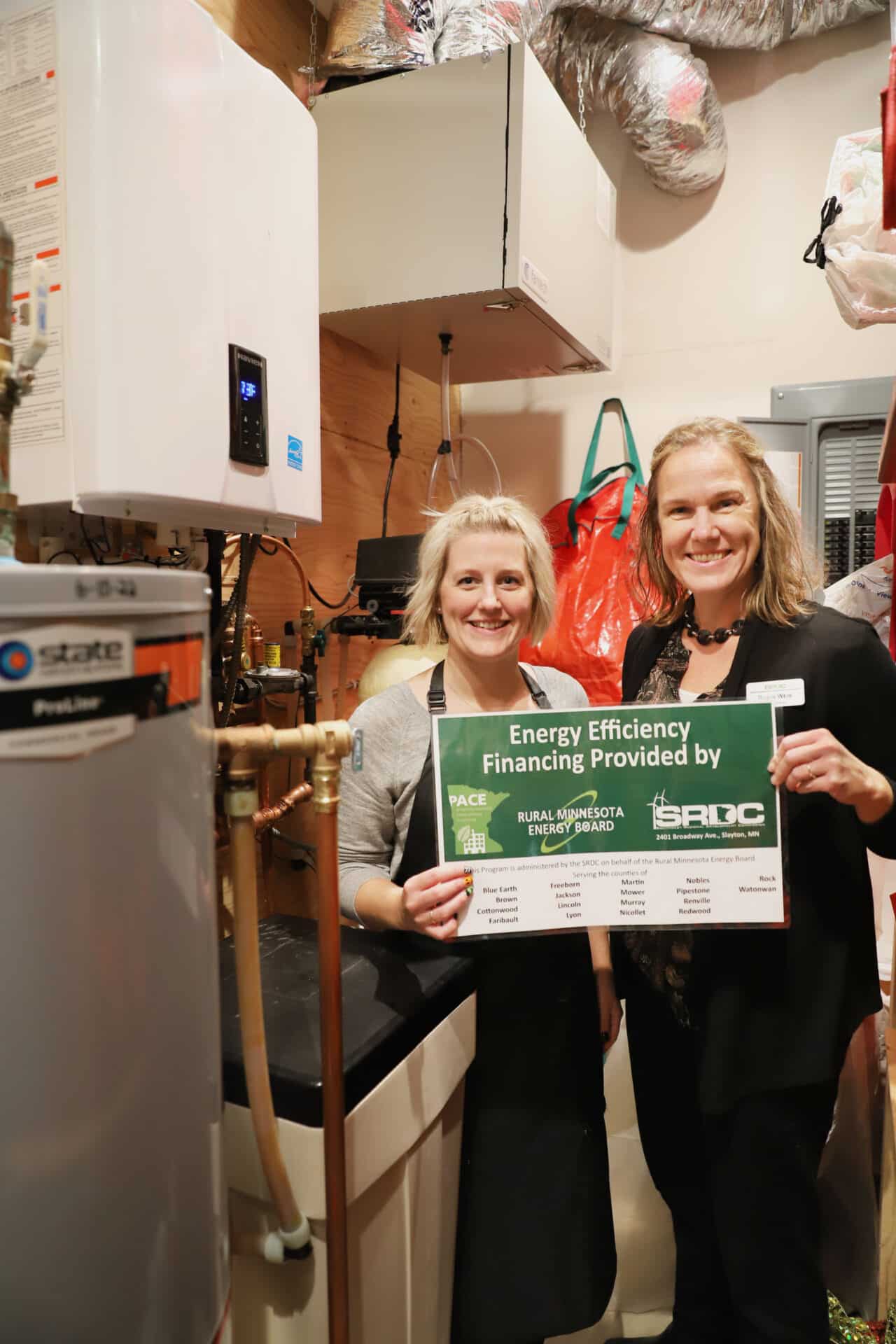
Maddy Robinson enjoying the warmth of her new radiant heat
Maddy Robinson of the Broadway Beauty Salon is excited to cut her heating costs and enjoy her toasty warm floors as a result of recently finishing her radiant floor heating project at the salon.
A brief history:
Maddy Robinson has been beautifying clients for 13 years as the owner of Broadway Beauty Salon in Slayton. She moved to her corner location at 2502 Broadway 8 ½ years ago. However, the building needed a lot of work. After much consideration, Maddy decided to move forward to craft a new space for her salon.
Construction for a new facility began in spring 2021, and Maddy opened the doors just before Thanksgiving that same year.
Maddy, with the guidance of her contractors, decided to include tubing for radiant heating as part of her construction plans. "I wasn't very knowledgeable about the process, but my contractors strongly recommended it after reviewing the project," said Maddy when asked about it. Due to the high cost of installing the boiler, she was unable to complete the project at that time, despite the warmth it could have provided. However, the tubing was installed during the construction phase so that when she was ready, the radiant floor heat could be completed.
Maddy commented that she had previously discussed the PACE (Property-Assessed Clean Energy) loan with Robin Weis, the Deputy Director of the Southwest Regional Development Commission, when she was contemplating remodeling her former building. Therefore, Maddy did have prior knowledge about the program but was not entirely familiar with the concept since it was not relevant to her at the time.
In August of this year, Maddy realized that she needed to take action to address the heating expense in the building due to the high ceilings consuming a lot of energy. During a conversation with Robin earlier this summer, she suggested the PACE loan program, and Maddy decided to give it a try. “The process was simple and fast, and I was able to complete the project as a result. The best part is that there were no upfront costs, as the loan was added to the property taxes. This was helpful for me, as I didn't have to come up with the funds beforehand to finish the process. Another advantage was that I didn't have to shut down the business during the renovation, and I could continue to schedule clients throughout the process.”
Based on the energy assessment carried out on the property, Maddy expects to be 20-25% more efficient by using radiant floor heating versus traditional forced air heating. Radiant floor heating systems are easy to operate with a thermostat and many are also compatible with Wi-Fi. In contrast, traditional radiators need to run at a much higher temperature, between 149 to 167 degrees, to effectively heat a room. On the other hand, floor heating only requires a temperature of 84 degrees to be effective. As less heat is required, it uses less energy, which translates to savings on energy bills. Maddy anticipates additional savings from her Nest thermostat, ranging from 10% to 12% on heating, and a decrease in cooling costs of $131 to $145 annually. Furthermore, Maddy has also added window coverings, which are expected to reduce heat loss by approximately 45%, resulting in a significant increase in energy performance.
Maddy was able to utilize the services of Slayton Electric along with Tim’s Plumbing and Heating – both located in Slayton.
PACE loans provide a new way for commercial property owners to finance energy-efficient and renewable energy upgrades to their buildings. The repayment of the energy-saving measures is done through the owner’s property tax assessment, which eliminates the burden of upfront costs (other than origination and closing costs) and provides low-cost, long-term financing. The program covers a wide range of energy-saving measures such as HVAC (heating and cooling), lighting, refrigeration, motors, equipment, insulation, air sealing, solar energy systems, wind turbines, geothermal, and electric vehicle charging infrastructure. This program is available to businesses and ag producers located in the Rural Minnesota Energy Board's (RMEB) counties. The Southwest Regional Development Commission administers the program. For complete details and more information, you can visit the SRDC's website at swrdc.org.
